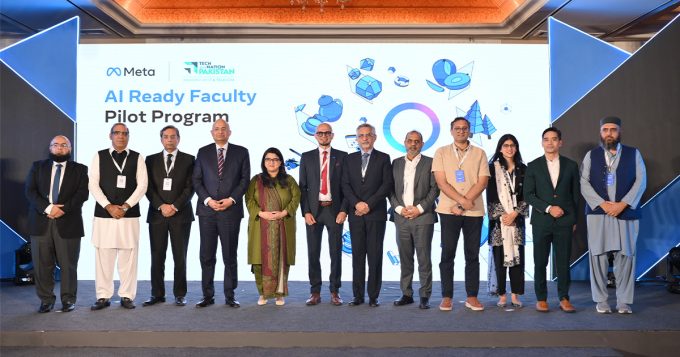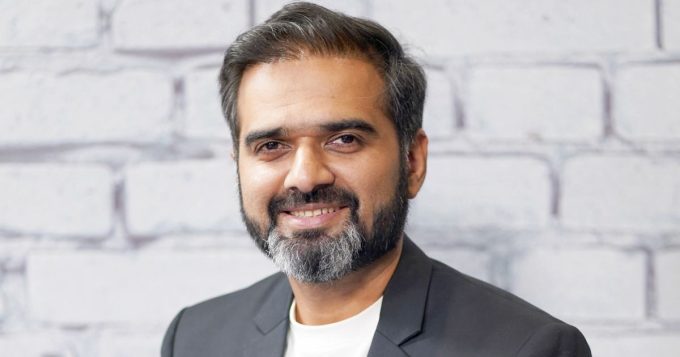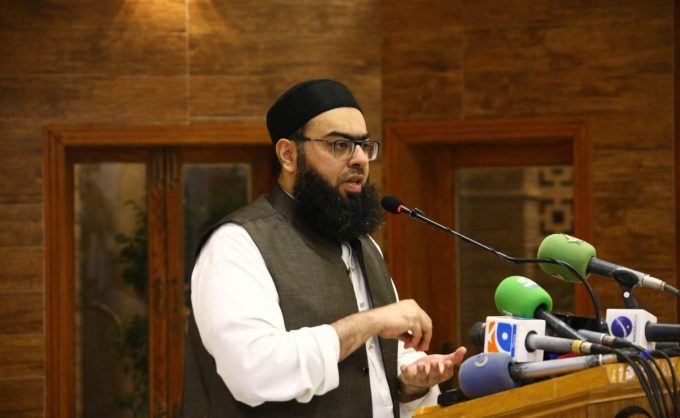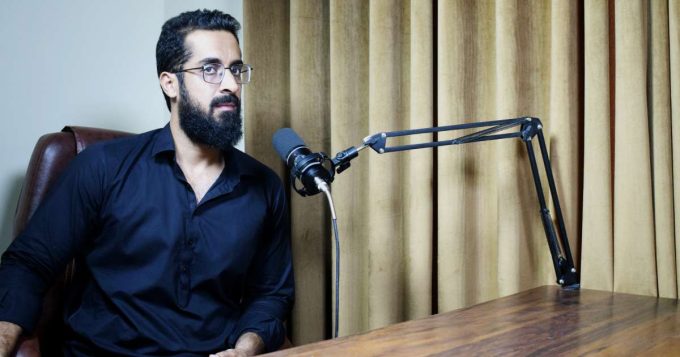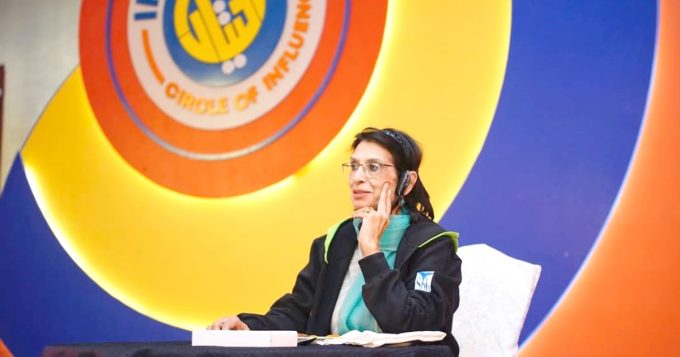With over 2,000 schools and 300,000 students, The Citizens Foundation is often defined by numbers. But behind the statistics are human stories: children discovering the power of learning and parents witnessing dreams they once thought impossible.
Leading this journey is Zia Akhter Abbas, President and CEO, who moved from corporate banking into education. He now guides TCF’s growth, balancing ambition with sincerity. We sat down with him to talk about the impact beyond the numbers.
Synergyzer: You spent 17 years in banking. What part of that mindset did you have to unlearn when you stepped into education?
Zia Akhter Abbas: In banking, everything moves fast and feels transactional. You are always chasing short-term wins – profit, efficiency, quarterly targets. Over time, it can feel like a video game, increasingly detached from real life.
Stepping into education meant letting go of that mindset. At TCF, the work is deeply human and anchored in purpose. The biggest shift was internal: learning to lead through intention, not just the under the pressure of outputs.
Here, metrics still matter – operational indicators, learning outcomes, but they tell only part of the story. The most important results are subtle, long-term, and often impossible to measure on a spreadsheet. You have to be at peace with doing meaningful work, even when the most profound changes may take years, sometimes decades, to surface.
You are helping shape futures, one child at a time, and progress often reveals itself in the smallest moments: when a child raises their hand in class, when a parent places their trust in the school, or when a teacher rediscovers their own sense of worth and impact.
Synergyzer: Did you ever question the Pakistani model of education? What pushed you to rethink and do differently afterwards for TCF?
Zia Akhter Abbas: We constantly question the education model. The challenges we see are not unique to Pakistan; they point to a global need to rethink how education works. One key challenge is that students often memorise answers based on rote learning and guessing questions and patterns.
On top of that is the issue of rampant cheating and corruption in examinations across most of our local boards. When assessment is flawed, the entire learning journey is compromised. That is why we moved all our schools to the Federal Board of Intermediate and Secondary Education – a rigorous, concept-based, well-invigilated system. Yes, it is much harder for the students and the teachers. But if you do not fix assessments, you cannot fix outcomes.

Synergyzer: Everyone talks about “quality education,” but what does that really mean for a child in a TCF classroom?
Zia Akhter Abbas: It means a child who once sat in a corner silently is now teaching their parent to brush their teeth properly. It is a boy reading with fluency and comprehension in Grade Four, when no one in his home can. It is a girl challenging her father’s ideas with the critical thinking and respect she has learned in school. It is dignity, voice, curiosity, and a chance to dream.
We aspire to achieve three things from the child’s learning journey in school: first, the learning outcomes. A child should be able to read and write at the right level. They should gain the skills and knowledge embedded in our curriculum.
Second, the life outcomes are the ability to step confidently into the world. To break free from poverty and make the best possible decisions for themselves, their families, and their future. Third, moral intent, so that when faced with a moral choice. This young person should lean towards actions that benefit not just themself. But also protect the rights of others and contribute to the common good.
These are ambitious goals, but they reflect the complexity and the importance of what we are trying to accomplish through education.
Synergyzer: Was there a moment with a student, teacher, or parent, that completely changed how you see your role or your mission?
Zia Akhter Abbas: Over the last decade, countless moments have shaped my perspective and, in many ways, shaped me. The children constantly surprise me with their potential, resilience, and determination. While our teachers pour their hearts and souls into shaping young lives.
But the conversation that perhaps most profoundly shifted my view of my role at TCF. It was with one of our founders, Ateed Riaz sahib. I was working on a positioning statement for TCF, experimenting with the word ‘hope’.
When I shared some options with him, he seemed underwhelmed. Curious, I asked why, he explained that hope is a relatively weak sentiment to describe the work we do. When you are giving your all, surrounded by people who care, walking beside you and supporting you, and when your effort is driven by the intent to seek God’s favour. You can be certain of success in your endeavour. Belief, he said, is far more powerful than hope.
Read More: TikTok Teachers – How 15-Second Lessons Are Rewriting Learning
Synergyzer: Has TCF ever walked away from a donor or partner because it did not align with your values? What did that cost you, and was it worth it?
Zia Akhter Abbas: Absolutely. We have turned down millions of dollars in situations where the grantor’s conditions did not serve the best interests of our communities. Or where we knew we could not use the funds in a way that truly aligned with the donor’s core intent.
In every case, the financial cost was significant. But you would be hard-pressed to find anyone in TCF’s senior management who regrets those decisions. Our greatest asset is the trust people place in our integrity, and protecting it is non-negotiable for us.

Synergyzer: You emphasise moral education, but can values really be taught like a subject? How do you make sure they are lived, not just learned?
Zia Akhter Abbas: Values can be written in books, but they cannot truly be taught on a blackboard. They have to live in the behaviour of every TCF team member and in the rhythms, rituals, and routines of our schools.
When every staff member, from the principal to the gatekeeper, treats donor money as a sacred trust. And every teacher models respect and fairness, values begin to shape daily life quietly. This is an ongoing journey, and we are far from declaring victory.
But we are deliberate about managing this massive organisation through culture, not just KPIs. I also believe that people are more likely to make positive moral choices when they feel hopeful about the future. We want education, along with everything else we provide. To give young people a real stake in their community and their country’s future.
Synergyzer: Is EdTech really a bridge or just a shinier kind of divide? In places with no electricity or internet, how do you stop digital tools from leaving your students even further behind?
Zia Akhter Abbas: I believe we are witnessing a rapid and irreversible shift towards technology, creating a more level playing field. Yes, challenges like access to electricity, connectivity, and hardware are real and limiting – but our communities are remarkably resourceful, and the cost and availability of these essentials will only improve with time.
At TCF, we have been proactively testing EdTech to address specific gaps in the learning journey, such as strengthening the subject knowledge of thousands of teachers across the country. Or bridging the wide differences in learning levels within a single classroom. AI will only accelerate this search for solutions, helping us tackle barriers like language and learner engagement – challenges once thought far harder to overcome.
Synergyzer: When a TCF student asks you, “Should I dream of Harvard or just learn something that pays next month?” What do you really want to say? Are short, skills-based paths the smarter bet now?
Zia Akhter Abbas: It is difficult to tell someone that Harvard is out of reach when, recently, a young girl from a TCF school in Orangi, Karachi, achieved that very milestone. We believe that recognising one’s true potential begins with having the courage to set high aspirations.
At the same time, we understand the financial challenges faced by many of our students’ families and their need for more immediate options. That is why we offer advice and counselling to help students make sensible choices about their learning journeys, along with financial assistance to help make those journeys possible.
Today, one in four TCF graduates goes on to complete university, but we also recognise that not every child can or will take the university route, so we encourage both ambition and practical alternatives – whether through skill development, entrepreneurship, or other pathways to a better future.
Synergyzer: When every brand wants its logo on a school gate, how do you tell real impact from shallow marketing?
Zia Akhter Abbas: Donors are vital to TCF’s sustainability and to advancing our mission. Every TCF school prominently acknowledges the institution or individual who has helped establish and sustain it. Along the way, we work hard to balance the donor’s CSR objectives with the students’ learning experience, privacy and dignity. Thankfully, we have consistently found our donors to be understanding and receptive to these conversations, recognising that the mission must always take precedence over marketing.
Synergyzer: What if your students choose to succeed within the system rather than change it? Does it concern you that education meant to liberate them might also teach them to adapt, stay quiet, and fit in?
Zia Akhter Abbas: The truth is, many of us have navigated our way to success by learning to work within the rules of the system as it exists today. So why should the responsibility of transforming the system we have built and perpetuated fall squarely on the shoulders of these children? That said, through the lives they lead in school and beyond. These boys and girls are sparking countless revolutions in their homes and communities.
Thousands of households are making their way out of poverty. And we are seeing fundamental shifts in gender roles within households. In attitudes towards female education and work, and in the degree to which community benefit is weighed when making personal decisions. Real, lasting change is often slow, almost invisible at first, and rooted deeply in the evolving attitudes and values of ordinary people.

Synergyzer: TCF’s Strategy 2030 sets a big vision. But what was the hardest part of getting everyone to align behind it?
Zia Akhter Abbas: In many ways, TCF is more than an organisation. It is a community and a movement, where every donor and volunteer feels a genuine stake in the platform and the mission. Naturally, shaping a strategy for such a movement needs to be deeply collaborative.
True ownership and alignment happen only when people feel their voices are heard and their perspectives matter. For us, this is not an episodic strategy development exercise every few years. But a continuous conversation grounded in authenticity and transparency.
If we can carry this intent beyond words and weave it into our everyday management practices and processes. The movement will not just sustain, it will thrive and grow stronger.




